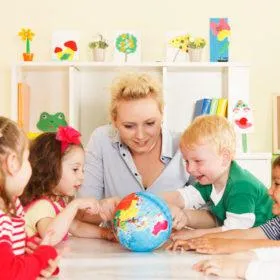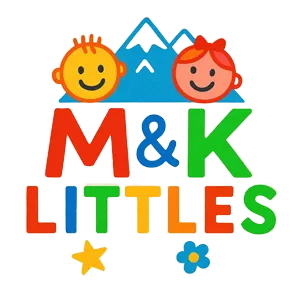The Unique Importance of Sensory Learning, Motor Skills, and Problem-Solving in Early Childhood at M&K’s Littles Child Development Center
At M&K’s Littles Child Development Center, we recognize that early childhood is a critical time for developing the foundational skills that children will carry with them throughout their lives. Our approach to education emphasizes sensory learning, fine and gross motor development, hands-on learning, and problem-solving skills, all of which are essential for nurturing well-rounded, capable learners. Each of these components is uniquely impactful, fostering growth in both academic and life skills.Have a Question or Want to Join Our Waitlist?
Sensory Learning: Engaging the Senses for Deeper Understanding
Sensory learning is one of the cornerstones of early childhood education at M&K’s Littles Child Development Center. This approach involves engaging all five senses—touch, sight, smell, hearing, and taste—to help children explore and understand the world around them. Sensory experiences—such as playing with sand, water, or textured materials—stimulate brain development and improve memory, attention, and focus.
What makes sensory learning unique is how it supports cognitive growth while simultaneously helping children process emotional experiences. Sensory activities encourage exploration and curiosity, and as children engage with various textures, colors, and sounds, they develop an understanding of cause and effect, spatial relationships, and problem-solving in real-time. These experiences build neural connections, improving overall brain function and laying the groundwork for future learning.

Fine Motor Skills: Precision in Every Move

Fine motor skills involve the small muscle movements required to perform tasks like drawing, writing, and using utensils. These skills are critical for children as they begin to engage in academic tasks like reading and writing. Activities like coloring, threading beads, or using scissors in early childcare settings help develop the dexterity and coordination needed for these skills.
Fine motor development is unique because it is tied closely to cognitive and emotional growth. By mastering fine motor tasks, children gain a sense of accomplishment and independence. These tasks also help build focus and attention to detail—key qualities for academic success in later years.
Gross Motor Skills: Building Strength and Coordination
Gross motor skills, on the other hand, involve the larger muscle groups needed for movement. Activities like running, jumping, climbing, and dancing help children develop strength, coordination, and balance. These physical activities are vital for building a child’s overall physical health and boosting their self-confidence.
What makes gross motor development unique is how it integrates with cognitive skills. Physical activity often involves following directions, working with peers, and understanding spatial awareness. These skills not only improve physical health but also enhance social and problem-solving abilities as children navigate the world around them.

Hands-On Learning and Problem-Solving: Active Engagement with the World

Hands-on learning, whether through building blocks, puzzles, or science experiments, is an invaluable teaching tool in early childhood education. Children learn best by doing—actively exploring materials and concepts in ways that engage their senses and minds. This tactile approach allows children to learn through trial and error, encouraging them to think critically and independently.
Problem-solving is a natural outgrowth of hands-on learning. As children encounter challenges during these activities, they are prompted to think creatively and find solutions. The process of solving a problem fosters resilience, decision-making, and critical thinking. Children who practice these skills early on develop a growth mindset, which is essential for academic and life success.
Parent Testimonials

M&K's Littles has been a true blessing for our family. From the very first day, we felt like part of a loving community.
Karen Sanders

The staff is not only experienced and professional, but they also treat each child with genuine care and attention.
Walter Williams

Our little one has grown so much—socially, emotionally, and academically—thanks to the hands-on learning environment.
Amanda Smith

M&K's Littles is the only place I trust with my child—they create a loving, fun environment where learning comes naturally.
Amy White

M & K's Littles Child Development Center fosters a welcoming, home-like environment where children develop essential skills through hands-on, child-centered learning inspired by HighScope, Montessori, and Reggio Emilia approaches.